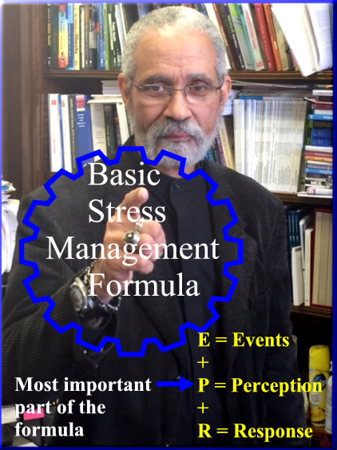Dr. L.'s 3-Stress I-R-M Approach For Stress Management
Dr. L."s 3-Strep I-R-M Approach For Stress Management
Dr. L."s 3-Step I-R-M Approach to Stress Management is a comprehensive framework that can help individuals effectively address and manage stress in their lives. Let's explore each step in more detail:
1. Identify: The first step, "I," involves identifying your stressors. This requires a deep introspection and awareness of the various factors that contribute to your stress levels. It could be work-related pressures, personal relationships, financial concerns, health issues, or any other aspects of your life that cause stress. By identifying these stressors, you gain clarity on what specifically needs to be addressed and can take targeted actions to reduce their impact.
2. Recognize: The "R" step emphasizes the importance of recognizing when you are experiencing stress. This involves being attuned to both the physical and emotional signs of stress. Common physical symptoms may include headaches, muscle tension, fatigue, or changes in appetite. Emotional indicators could include irritability, mood swings, anxiety, or difficulty concentrating. By recognizing these signs early on, you can intervene and take steps to manage stress before it becomes overwhelming.
3. Manage: The final step, "M," focuses on managing stress using a variety of strategies. This step is crucial as it empowers individuals to take control of their stress levels and promote overall well-being. Managing stress involves implementing a range of techniques and practices that work best for you. These may include:
- Lifestyle changes: Adopting a healthy lifestyle with regular exercise, balanced nutrition, adequate sleep, and proper time management can greatly reduce stress levels.
- Relaxation techniques: Engaging in relaxation techniques such as deep breathing exercises, meditation, yoga, or mindfulness can calm the mind and alleviate stress.
- Setting boundaries: Learning to say no, setting realistic expectations, and establishing boundaries in both personal and professional settings can prevent overwhelm and reduce stress.
- Seeking support: Building a strong support system by confiding in trusted friends or family members, seeking therapy or counseling, or joining support groups can provide valuable guidance and assistance in managing stress.
- Time management: Developing effective time management skills, prioritizing tasks, and delegating responsibilities can help reduce stress related to overwhelming workloads or commitments.
- Self-care: Prioritizing self-care activities that bring you joy and relaxation, such as engaging in hobbies, practicing self-compassion, or indulging in activities that recharge your energy, can play a significant role in managing stress.
By following the 3-Step I-R-M Approach, individuals gain greater self-awareness, a clearer understanding of their stressors, and a toolbox of strategies to effectively manage stress. Remember that managing stress is an ongoing process, and it may require adapting and incorporating different techniques as needed.
Follow these three simple and sequential streps to more successfully manage the stress in your life!














